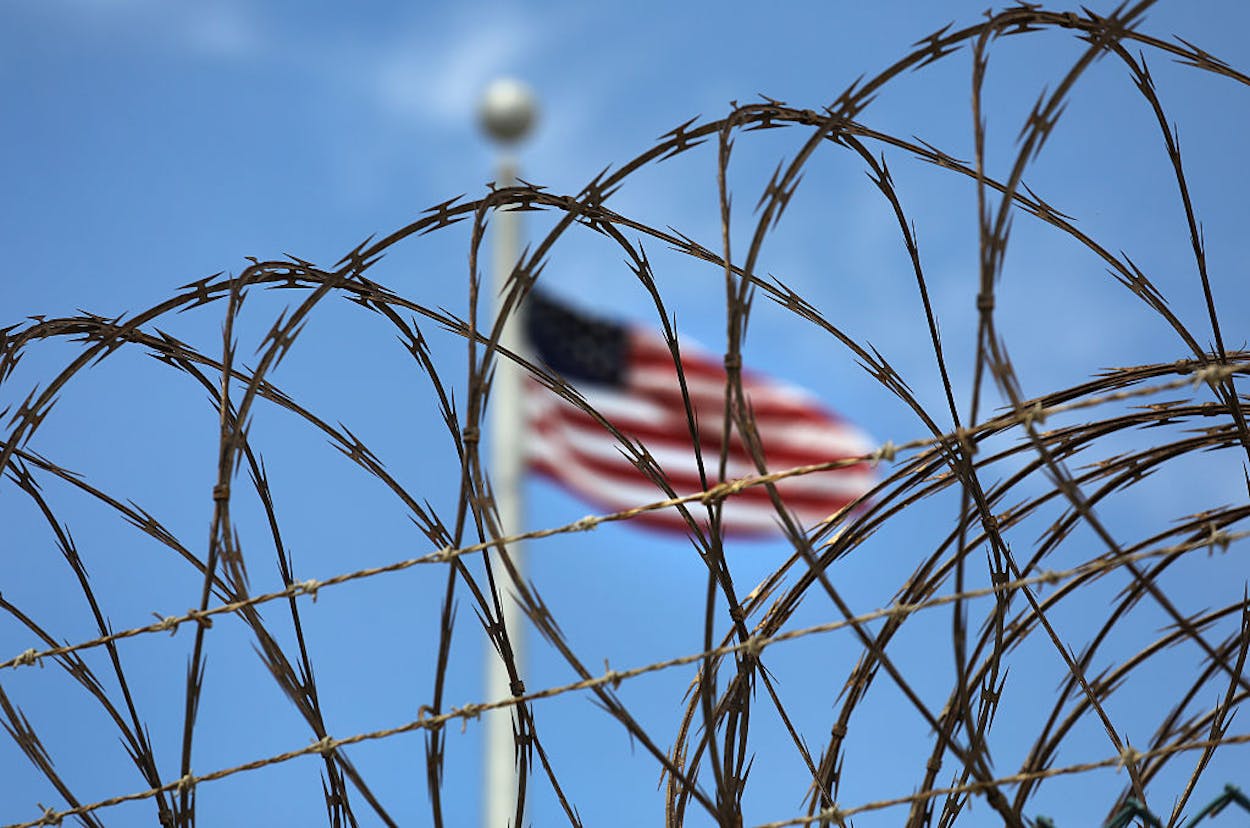Last Wednesday, the first of what would eventually be over 100 inmates were unexpectedly granted early release from the massive Harris County jail in downtown Houston. The inmates had only two things in common: all of them had been arrested for a misdemeanor offense like trespassing or criminal mischief, and none had been able to pay the cash bond set by a hearing officer—which meant that they were stuck in jail until the resolution of their case.
This system—known colloquially as “pay or stay”—has been the law of the land in Houston and most other jurisdictions in the United States since at least the nineteenth century. Almost 75 percent of the people in Texas jails are there not because they have been convicted of a crime, but because they are awaiting trial and can’t afford their bond. But the practice of cash bond is now being challenged across the country, from California to New Jersey. And the most important battlefield may turn out to be Harris County.
In May 2016, Maranda Lynn ODonnell was arrested in Houston for driving without a license and, unable to make her $2,500 bond, spent two days in the Harris County jail. Civil Rights Corps, a non-profit organization led by young Harvard-trained lawyer Alec Karakatsanis, sued Harris County in federal court on ODonnell’s behalf, claiming it was unconstitutional to hold her in jail simply because she didn’t have enough money to pay her bond. (Houston law firm Susman Godfrey worked with Civil Rights Corps on the case, which was later classified as a class action suit.)
Over the past few years, Karakatsanis’s group has filed many similar lawsuits around the country, including against small towns in Alabama, Missouri, Mississippi, and Georgia. Each of those towns settled the case before going to trial by agreeing to reform its pretrial release system. But Harris County, easily the biggest municipality Karakatsanis has taken on, didn’t intend to go down without a fight. It lawyered up, eventually spending over $1 million on outside counsel to defend itself against the lawsuit.
Harris County kept fighting the lawsuit even after one of the defendants, Sheriff Ron Hickman, was defeated in November by pro-reform candidate Ed Gonzalez, who ended up testifying in March in federal court on behalf of the plaintiffs. (Newly elected District Attorney Kim Ogg has also expressed her support of the lawsuit.)
On April 28, federal Judge Lee H. Rosenthal declared Harris County’s bail system unconstitutional, finding that it violated “equal protection rights against wealth-based discrimination.” The county appealed the decision to the Fifth U.S. Circuit Court, which is currently considering the case. But the Fifth Circuit turned down the county’s request to issue a stay on Rosenthal’s order pending the final outcome, meaning that Harris County would have to begin issuing so-called “personal bonds” to any misdemeanor arrestee who couldn’t afford his or her bond. After a final appeal to the Supreme Court was declined by Justice Clarence Thomas, the county finally began releasing those arrestees last week.
Harris County’s appeal still needs to be heard by the Fifth Circuit, and then potentially by the full Supreme Court. If Rosenthal’s ruling is upheld, it will likely mean the end of the money bail system nationwide. That isn’t as unrealistic as it seems—Washington, D.C. releases about 90 percent of people it arrests on personal bonds, which sometimes come with conditions like drug testing. In January, New Jersey eliminated the use of cash bail for all but the most dangerous arrestees.
In March, Senators John Whitmire, a Democrat from Houston, and Andy Murr, a Republican from Kerrville, introduced a bail reform bill in the Legislature that would have encouraged the use of personal bonds, and given judges more options to keep the most dangerous arrestees in jail. It died on the Senate floor after the powerful bail bond industry, whose existence is predicated on the cash bail system, successfully squashed it.

The Houston bail bond industry has already been rocked by Judge Rosenthal’s decision. “They’re going to have to figure out a different way to make a living,” Sarah R. Guidry, the executive director of the Earl Carl Institute for Legal and Social Policy at Texas Southern University, told the Houston Chronicle last week. “They’re not going to get the bulk of their income off of poor people who are charged with low-level crimes.”








